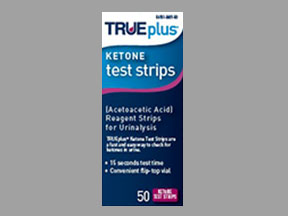
Ketone Test Coupons & Savings Card – Discount Prices from $4.70
Our coupons are free to use. Before paying, show the pharmacist your Ketone Test savings card to get your free discount. Use our filters below to edit the prescription box to match your needs. The Ketone Test prices will update based on your prescription needs. Above our Ketone Test coupons, you can change your location to see pharmacy prices and costs in other areas. We're here to help you buy Ketone Test at the lowest price with our prescription discount card.
My prescription
Edit
1, Ketone Test (50 Strips)
Select pharmacy

Albertsons
$4.70
COUPON PRICE
Walgreens
$4.70
COUPON PRICEKetone Test savings card
Show this card to your pharmacist
Albertsons
$4.70
BIN
ID
PCN
GRP
011867
LH287B4F67
HT
LABH001
Powered by
Our coupons are free to use. Before paying, show the pharmacist your Ketone Test savings card to get your free discount. Use our filters below to edit the prescription box to match your needs. The Ketone Test prices will update based on your prescription needs. Above our Ketone Test coupons, you can change your location to see pharmacy prices and costs in other areas. We're here to help you buy Ketone Test at the lowest price with our prescription discount card.
